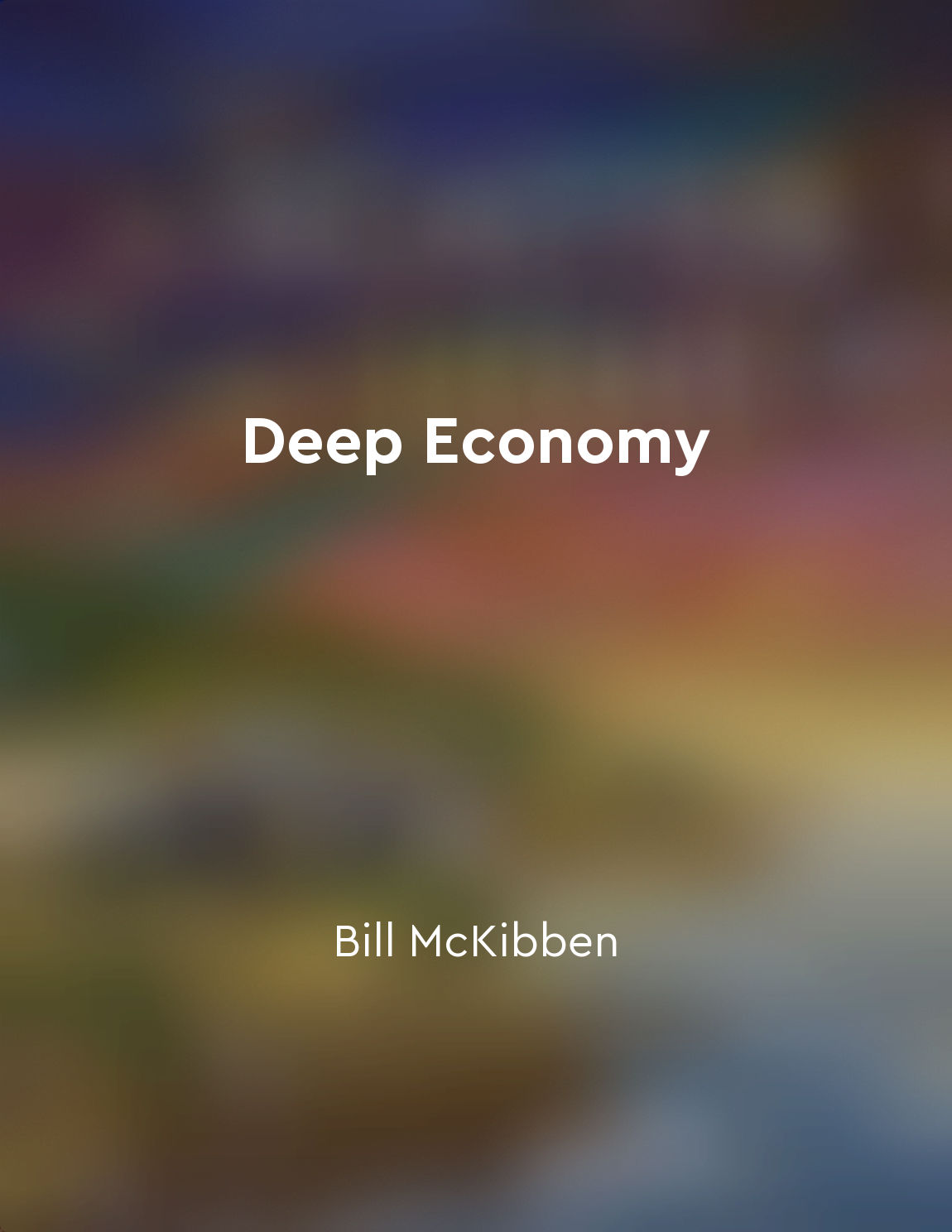Local economies can provide resilience from "summary" of Deep Economy by Bill McKibben
In an increasingly interconnected and globalized world, the idea of local economies providing resilience may seem counterintuitive. We have grown accustomed to relying on far-flung supply chains and global markets for our daily needs. However, as Bill McKibben argues in "Deep Economy," this reliance on distant sources of goods and services can leave us vulnerable to disruptions and crises beyond our control. By contrast, local economies offer a level of self-sufficiency and resilience that can help communities weather shocks and uncertainties. When goods are produced and consumed locally, there is less reliance on fragile global networks that can be easily disrupted. In times of crisis, such as natural disasters or economic downturns, local economies are better equipped to adapt and respond quickly to changing circumstances. Moreover, local economies foster a sense of community and connection that is often lacking in larger, more impersonal systems. When people know where their food comes from, who is producing it, and how it is being produced, they are more likely to value and support local businesses and farmers. This sense of connection can create a virtuous cycle of mutual support and cooperation that strengthens the social fabric of a community. In addition to promoting resilience and community cohesion, local economies can also have positive environmental impacts. By reducing the distance that goods need to travel, local economies can help reduce carbon emissions and other environmental impacts associated with long-distance transportation. Furthermore, by supporting local farmers and producers, consumers can help preserve farmland and open spaces, which are crucial for biodiversity and ecosystem health. While the transition to a more localized economy may require changes in consumer behavior and government policies, the benefits of such a shift are clear. By investing in local businesses, supporting small-scale agriculture, and fostering community connections, we can create a more resilient, sustainable, and vibrant economy that serves the needs of people and the planet.Similar Posts
Genetic engineering can help develop droughtresistant and nutrient-enriched crops
Genetic engineering has the potential to address the challenges of feeding a growing global population in the face of climate c...
Biodiversity must be protected
Biodiversity is the intricate web of life that sustains our planet, a vast tapestry woven together by countless species, each p...
Farming practices impact the quality of our food
The food we eat is only as good as the practices used to produce it. Farming methods have a direct impact on the quality of our...
Anticipation is key to survival
Anticipation is a fundamental aspect of survival in the natural world. Organisms that can accurately predict and respond to cha...
Urban agriculture fosters a deeper connection to the natural world
In urban settings, the hustle and bustle of daily life often disconnects us from the natural world that surrounds us. We become...
Social norms regulate behavior within societies
Social norms are unwritten rules that govern behavior within societies. These norms dictate what is considered acceptable or un...
We must prioritize the protection of endangered species
The protection of endangered species is crucial for maintaining the delicate balance of our ecosystems. These species play a vi...
The importance of empathy is emphasized
Throughout the narrative of 'The Echo Maker', the characters' journeys highlight the significance of understanding and compassi...
Native culture deeply rooted
The essence of the native culture in this land is a living, breathing entity that is deeply intertwined with the very soil upon...
Food waste is a major issue
The staggering amount of food that goes to waste in our society is nothing short of a tragedy. Every year, millions of tons of ...

